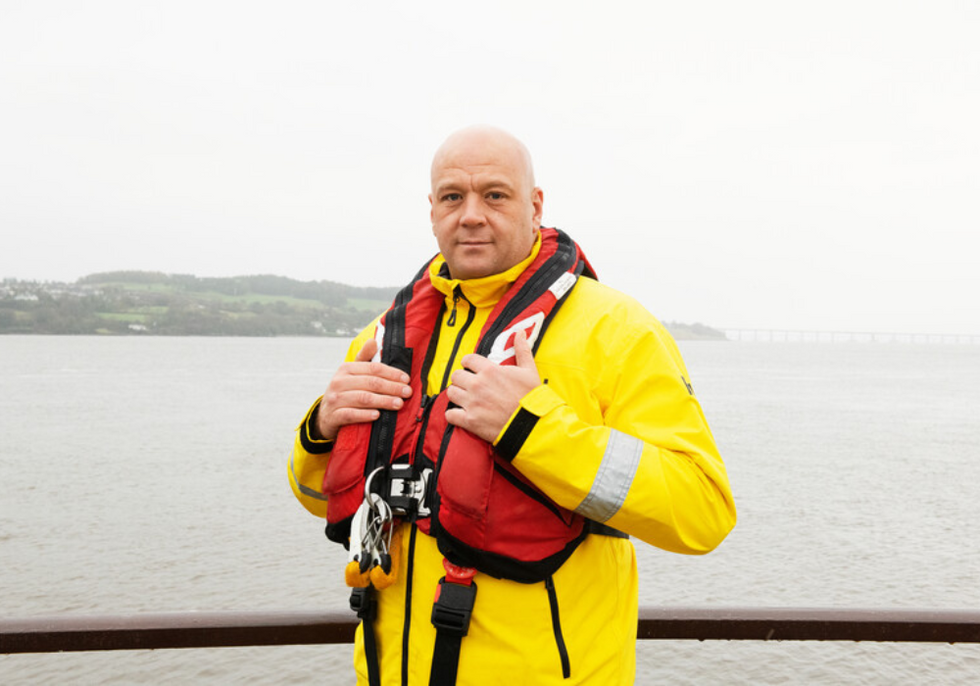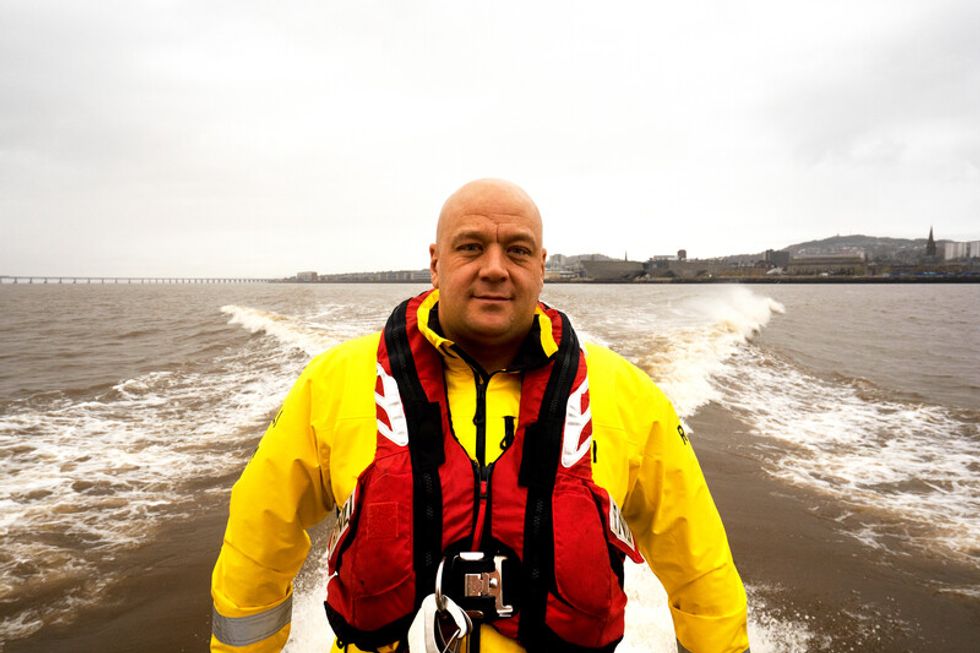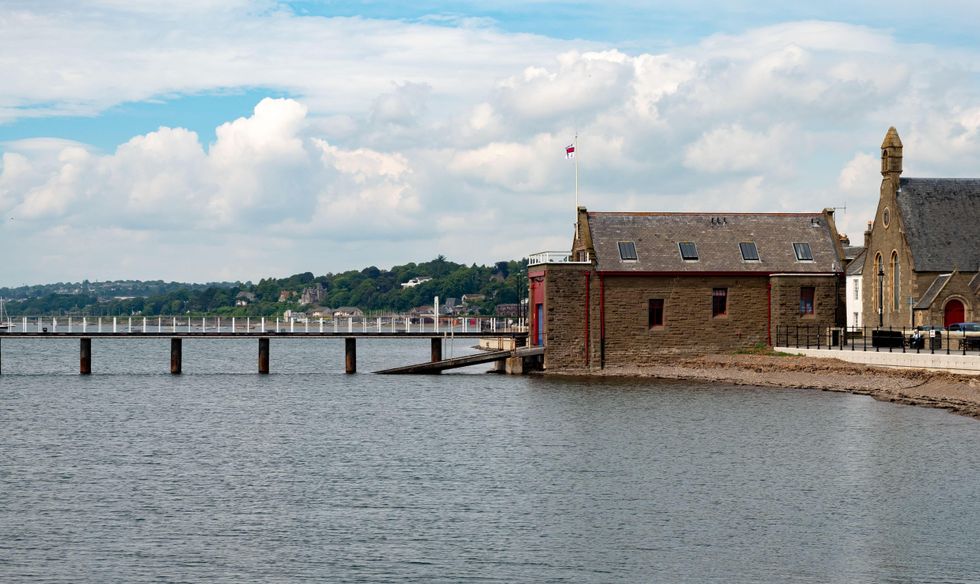
A Royal National Lifeboat Institution (RNLI) volunteer has told how his life was saved by the charity a decade ago as it celebrates its bicentennial.
Firefighter Benny Thomson, 43, from Dundee, has been a volunteer at Broughty Ferry lifeboat station since 2013 after being inspired to help by his own rescue.
As the charity marks its 200th year on March 4, he shared the story of his rescue by the RNLI on November 25 2012 – the day that Mr Thomson said “changed my life forever”.
With friends, he had decided to go to St Andrews in Fife to jet ski but the one of the machines being ridden by Mr Thomson and his friend Gavin Smith broke down.

They were pulled from their jet skis into the water and were heading further east into the cold waters of the North Sea.
“It became quite apparent that we were in danger once we had hit that part of the Abertay sands,” Mr Thomson said.
“Every wave that hit us was taking us under as well as the jet ski and eventually the jet ski did sink.”
Mr Thomson was able to see his friends, but they could not see him.
At this point we are thinking, maybe this is our time and we started to talk about how do we make it easy? Do we lie back? Do we go to sleep? Do we go under and take a deep breath?
Benny Thomson, lifeboat volunteer
Lifeboats from Broughty Ferry and Arbroath launched to search for them.
Mr Thomson added: “We tried to make a swim for the shore. Unfortunately the way that the tide and current was running that day all we were doing was holding our position, we were tiring ourselves out.
“We could see the guys out looking for us, the boats were out looking at us, we then heard the helicopter.”
The helicopter missed both of the men and Mr Thomson told how he feared death.

“At this point we are thinking, maybe this is our time and we started to talk about how do we make it easy? Do we lie back? Do we go to sleep? Do we go under and take a deep breath?
“But we just kept thinking about the kids and our wives at home.
“We had to get home.”
When they spotted the lifeboat, they blew their whistles as hard as they could.
Mr Thomson said: “The feeling was just unbelievable. It was amazing to know that someone’s found us.
Both Mr Thomson and Mr Smith were rescued. They were exhausted and could barely speak after having spent so long in the water.
They were taken to hospital in an ambulance and after tests, they were discharged.
Upon arrival at home, Mr Thomson said he remembered picking his son up and “crying like a little boy” as he was overcome with emotion.
The friends decided to get a tattoo the following day, marking themselves with a saying that their children said to each other when they were younger: “Love you lots like jelly tots” and the date that the rescue happened.
“After the rescue, it didn’t take me long. I came down to the lifeboat shed and spoke to the launch authority and stated I was interested in joining,” Mr Thomson said.
“In February 2013 I joined as a volunteer and to this day I still volunteer down at Broughty Ferry lifeboat station.”
A Service of Thanksgiving will take place at Westminster Abbey on March 4, marking the start of a range of activity throughout 2024 to remember the charity’s history, celebrate the modern lifesaving service it is today, and inspire generations of future lifesavers and supporters.
The RNLI has been saving lives at sea since it was founded in 1824 and, in that time, its lifeboat crews and lifeguards have saved more than 144,000 lives.
In Scotland, RNLI lifeboats have performed more than 45,860 rescue missions since 1824, saving 11,878 lives in the process.
More than a quarter (25.9%) of all rescues in Scotland have resulted in a life being saved.
Jill Hepburn, head of region for Scotland at the RNLI, said: “We’re incredibly grateful to the many generations of families who have volunteered their time and commitment, to ensure the charity’s lifesaving service has continued for 200 years.
“Benny Thomson epitomises the selfless dedication of RNLI volunteers around the UK and Ireland.
“Without volunteers we wouldn’t be able to continue to save lives at sea as we have done for the last 200 years.”
The charity operates 46 lifeboat stations in Scotland and relies on “ordinary people doing extraordinary things” Ms Hepburn said.
She added: “While innovations and developments in technology over the course of 200 years have inevitably changed how the charity saves lives, some things have remained the same.
“The volunteering ethos at the heart of the RNLI is what makes the charity so special – volunteers have given their time and commitment over the past two centuries, as they continue to do today.
“And generous donations have continued to power the RNLI’s lifesaving work – everything the RNLI has achieved since 1824 has been made possible thanks to their generosity.
“This year, we hope to inspire future generations of lifesavers and supporters who will take the RNLI into its next century and beyond.”













